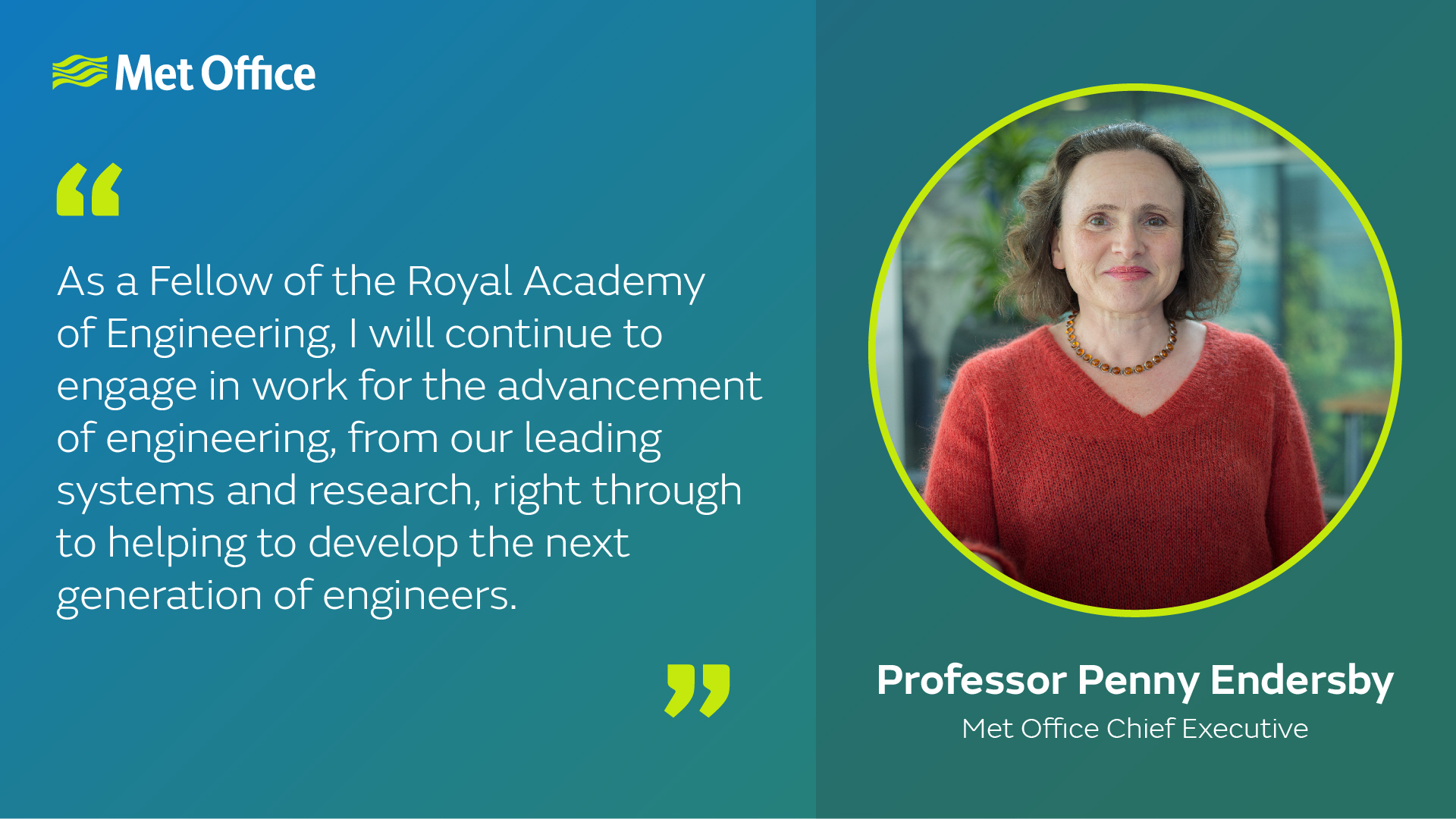Engineering Fellowship for Met Office Chief Executive
Author: Press Office
07:30 (UTC+1) on Wed 22 Sep 2021
Met Office Chief Executive Professor Penny Endersby has been elected as a Fellow of the Royal Academy of Engineering.
Around 50 Fellows are elected each year for the Academy by peer review from nominations made by existing Fellows and Prof. Endersby has been recognised as part of the list that represents the nation’s best engineering researchers, innovators, entrepreneurs, business and industry leaders.
Prof. Endersby is approaching three years since her appointment as the Chief Executive of the Met Office and has led the organisation through a range of innovations, including the development of new world-leading supercomputing capability that will take forecasting and climate projections to the next level when it is up and running from Summer 2022. This builds on the Met Office’s ongoing cutting-edge work with engineering, including on observations, marine, technology and software.
In addition, Prof. Endersby’s leadership has committed the Met Office to become a Net Zero greenhouse gas emitter by 2030, with significant steps already being taken to reduce emissions by moving to 100% renewable electricity at all main operational locations.

Prof. Endersby has been elected as a Fellow this year along with inspirational academics, industry leaders and engineering role models. She joins an illustrious group of existing Fellows in the Academy in what is considered to be one of the highest national honours that someone involved in engineering can achieve.
Prof. Endersby said, “It’s a great honour to have been elected as a fellow of the Royal Academy of Engineering. Throughout my career in Defence and at the Met Office I have worked at the junction of science and engineering, working to realise the latest ideas and techniques as solutions which save lives.
“In the Met Office our engineering expertise covers a wide range, from developing the latest lightning detection systems, to the huge data engineering challenges associated with our vast compute capability to the use of artificial intelligence to identify the information which will enable different clients to make decisions which are critical to them.”
The role of Fellows in the Royal Academy of Engineering is to promote excellence in engineering and to support research, policy formation, education and entrepreneurship that can advance and enrich engineering in all its forms. They will also add their capabilities to the Academy’s mission to create a sustainable society and an inclusive economy for all.
Prof. Endersby continued: “I have worked throughout my career to encourage others in the engineering profession and especially more women. As a Fellow of the Royal Academy of Engineering, I will continue to engage in work for the advancement of engineering, from our leading systems and research, right through to helping to develop the next generation of engineers.”
Sir Jim McDonald, President of the Royal Academy of Engineering, said: "Our Fellows represent the best of the best in the engineering world, and we welcome these 69 excellent and talented professionals to our community of businesspeople, entrepreneurs, innovators and academics.
“This year’s new Fellows are the most diverse group elected in the history of our institution. The engineering profession has long suffered from a diversity shortfall and the Academy is committed to changing that, including by ensuring that our own Fellowship community is as inclusive as it can be. It is well established that diverse organisations tend to be more agile and more innovative, and as the UK’s National Academy for engineering and technology, we have a responsibility to reflect the society we serve in addressing the shared challenges of our future."
Find out more about the Royal Academy of Engineering, including other Fellows elected this year.
Find out about engineering careers at the Met Office.


